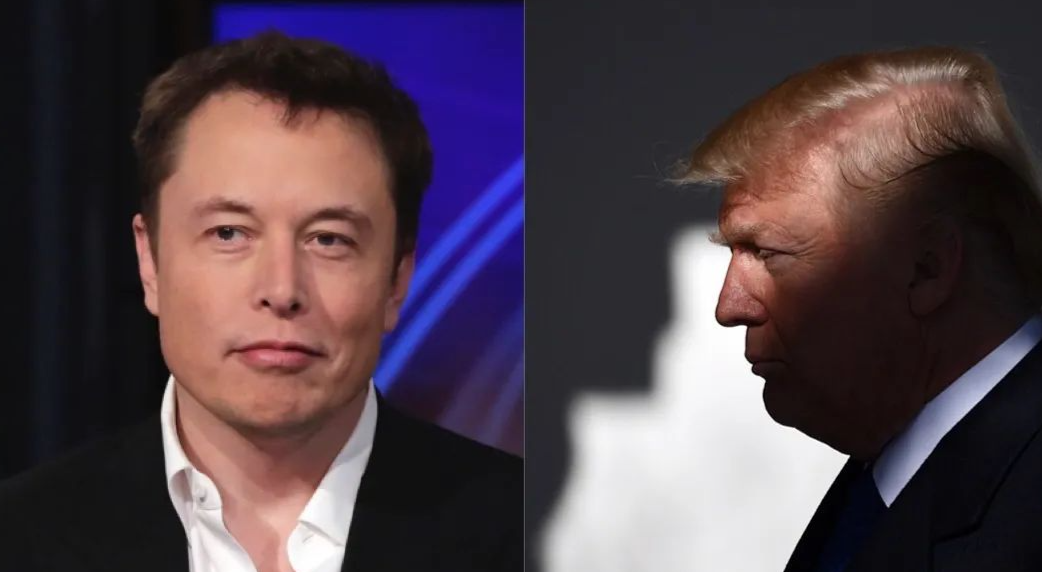In the complex landscape of American politics, the relationship between President Donald Trump and Elon Musk, the billionaire CEO of Tesla, has always been a topic of great interest. Their interactions have often mirrored the intricate dynamics of power, influence, and policy-making in the United States. Recently, however, this relationship has taken a dramatic turn, with Trump expressing his disappointment in Musk, highlighting deeper issues within the American political and economic spheres.
Elon Musk, known for his ambitious projects and innovative ideas, has long been a prominent figure in both the business and political worlds. His involvement in Trump’s administration was initially seen as a bridge between the tech industry and the government, promising to bring efficiency and innovation to the public sector. Musk’s work with the Department of Government Efficiency (DOGE) was highly publicized, with Trump often praising his efforts and vision. However, the recent feud between the two has exposed the fragile nature of such partnerships.
The crux of the conflict lies in Trump’s ambitious legislative agenda, particularly the so-called “Big Beautiful Bill.” This sweeping tax and spending legislation aims to extend Trump’s 2017 tax cuts, boost military and border security funding, and implement cuts to social programs like Medicaid and food stamps. Musk, however, has been highly critical of the bill, calling it a “disgusting abomination” due to its potential to significantly increase the national debt. He argues that the bill undermines the efforts of DOGE to reduce government waste and cut the deficit.
Trump’s response to Musk’s criticism has been one of disappointment and disillusionment. In an Oval Office meeting with German Chancellor Friedrich Merz, Trump stated that he was “very disappointed” in Musk, highlighting that Musk had previously shown no objections to the bill. Trump suggested that Musk’s change of heart was driven by personal interests, particularly the removal of tax credits for electric vehicles from the bill. This move, Trump claimed, had upset Musk, who saw it as a threat to Tesla’s business interests.
Musk, on the other hand, has refuted Trump’s claims, stating that he was never shown the bill and that his criticisms were based on its potential impact on the nation’s finances. He also pointed out the perceived unfairness of cutting EV incentives while leaving oil and gas subsidies untouched. Musk’s stance has been further fueled by his belief that Trump’s re-election victory was largely due to his substantial financial support during the 2024 campaign.
This public falling out between Trump and Musk is more than just a personal dispute; it reflects broader issues within American society. Firstly, it highlights the tension between political influence and corporate interests. Musk’s involvement in the administration was seen as a way to bring private sector efficiency to the government, but his criticism of Trump’s bill suggests that such partnerships can be fraught with challenges. When corporate interests conflict with political agendas, the resulting friction can have significant repercussions.
Secondly, the feud underscores the deep divisions within American politics. While Republicans have largely rallied behind Trump’s legislative efforts, Musk’s criticism has provided ammunition for Democrats. The debate over the “Big Beautiful Bill” has become a microcosm of the broader ideological battles between those who prioritize tax cuts and border security, and those who advocate for social programs and fiscal responsibility.
Moreover, the conflict between Trump and Musk also illustrates the volatile nature of political alliances in the United States. What was once a seemingly harmonious relationship has quickly deteriorated into a public feud. This demonstrates that even the strongest partnerships can be undone by differences in policy priorities and personal interests.
In conclusion, Trump’s disappointment in Musk serves as a microcosm of the complex and often contentious nature of American politics. It highlights the challenges of balancing corporate interests with political agendas, the deep ideological divisions within the country, and the fragile nature of political alliances. As the feud between these two influential figures continues to unfold, it remains to be seen how it will impact both their individual trajectories and the broader political landscape of the United States.

